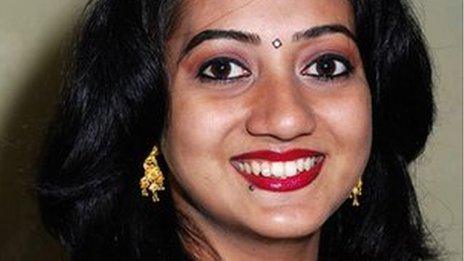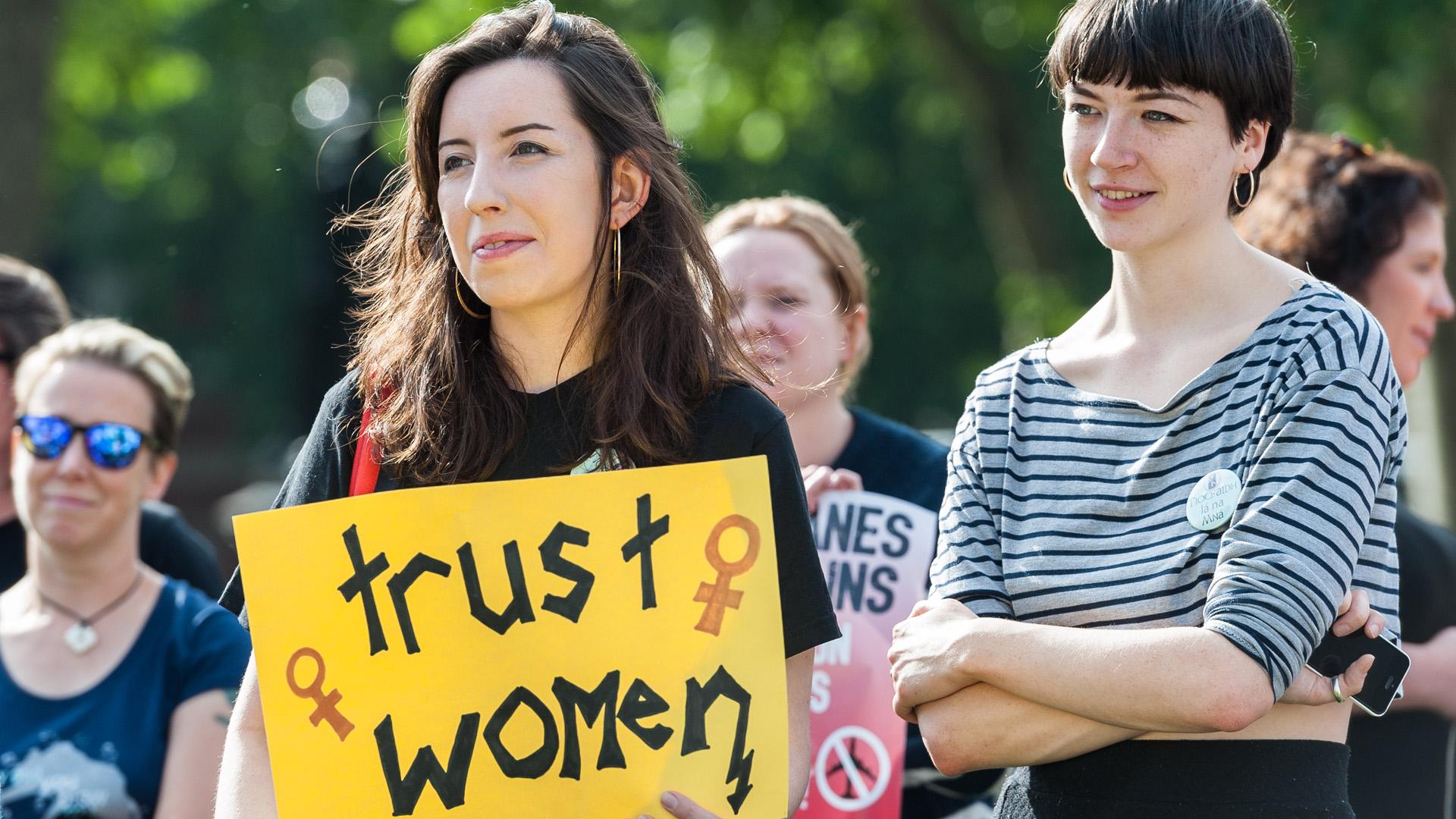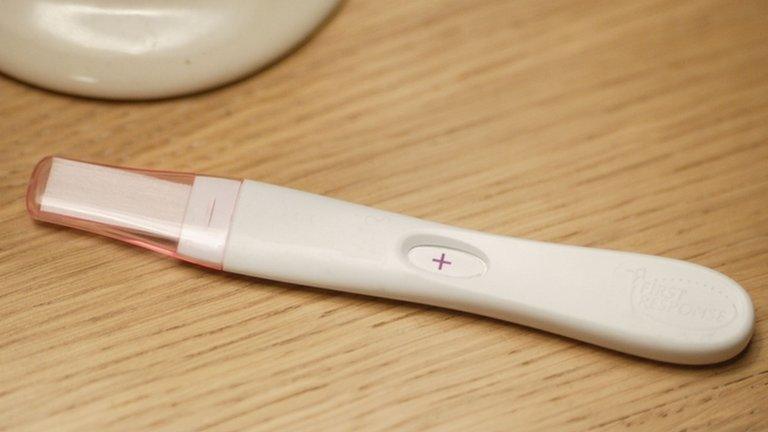Abortion rules: Could tragic case like Savita Halappanavar's happen in NI?
- Published

Savita Halappanavar's family said she asked several times for an abortion before she died. Photograph courtesy of the Irish Times
A tragic case in the Republic of Ireland involving a woman who died after reportedly being refused an abortion has brought into sharp focus the fact that doctors in Northern Ireland are also operating without clear guidelines.
The case in Galway involved 31-year-old Savita Halappanavar, who was miscarrying and later died from a blood infection. Her husband said she had repeatedly asked for a medical termination but he claimed that her request was refused.
The hospital authorities said the "facts of this tragic case have yet to be established" and Mrs Halappanavar's death is now the subject of two investigations.
But could a similar situation arise in Northern Ireland?
In most pregnancies the scan pictures bring excitement and anticipation, but for some it can bring bad news. Leanne Murphy from Belfast was 12 weeks pregnant when she was told there was something wrong.
Option
She said: "They offered me further tests, a CVS (chorionic villus sampling test, external) and an amnio (amniocentesis, external) and they also said that if anything came back on those tests, a termination would be made available to us.
"At the time I was in shock really that there could possibly be something wrong with my baby. It was only after, when I thought about it, I was taken aback the fact that this was an option for somebody whose baby possibly had a disability."
She chose not to have further tests or a termination: "Personally no, a termination was not an option for us - we just continued on with the pregnancy regardless of the testing."
For Leanne it was a happy ending - she gave birth to a healthy baby boy who is now four years old. For other women it is not so straightforward.
The BBC has been told of other cases where women, particularly in rural areas, have been told late into their pregnancies that something is wrong.

NI Health Minister, Edwin Poots, said he was against the "selection of mankind"
Legal position
If they want to have a termination they have to travel outside of Northern Ireland and go into labour as part of the procedure.
So what is the legal position? In a recent statement NI Attorney General, John Larkin, said: "It must be stressed that termination of a pregnancy based solely on the abnormality of an unborn child is always unlawful."
But in a recent interview with the Sunday Politics programme Health Minister, Edwin Poots, was asked how he viewed the legislation.
"Having had a brother who was severely learning disabled, I was brought up in a home to love and appreciate people who have disabilities.
"I was brought up in a home where you got a special amount of love from someone who had a learning disability. I actually detest (the idea) that if someone has Down's Syndrome or some other sort of abnormality detected in the womb that that life is of no value.
"I think that it is wholly wrong and I think that sort of selection of mankind, of human beings, is something we would do well to avoid
Dilemma
But he added: "There may be circumstances where a child cannot live outside of the womb where those discussions take place and we have to leave those things to the clinicians who are well placed to act within the legislation."
Women face the dilemma but medical staff also operate in uncertain circumstances. There is no legislative law regarding abortion in Northern Ireland, only case law.
Doctors, nurses and midwives can opt out on the grounds of conscience. But medical staff who are willing to carry out abortions are often fearful of legal action.
Dr Noel Scott is a retired pyschiatrist with more than 30 years experience working in Belfast City Hospital. He believes the law should change in Northern Ireland.
"My understanding is that 70 abortions were carried out in the last year (for which) figures are available. But in that same time 1,100 women went to England. That's a human rights issue. They should not have the trauma and expense of having to travel to England."
Professor Bill Rolston from the Universtiy of Ulster has written extensively on the subject of abortion. He believes the law is failing women in Northern Ireland.
Guidelines
"I think that this lack of clarity and lack of legal guidance for doctors is not helping at all - for every woman who has a legal abortion here there are the same number who are having to take themselves to England and that should not be.
"This is a standard view across the world in United Nations countries - they should have a service available locally," Prof Rolston added.
All hospitals in Northern Ireland have to keep a tally of the number of terminations - but they do not record the reason they were carried out.
Some Stormont MLAs, including the SDLP's Pat Ramsey, have been trying to get a breakdown.
"There clearly (are) terminations taking place - it's simply a case of trying to find out the reason or the rationale that a consultant has used. And that's important.
"We must ensure that it's consistent and make sure that there is no wholesale abortion happening in Northern Ireland," Mr Ramsey said.
Difficult decisions
The question many are asking now is - could the tragic situation that arose in Galway happen in one of Northern Ireland's hospitals?
The Family Planning Association (FPA) has been campaigning for ten years to force the Department of Health to publish guidelines for doctors - to protect them in the eyes of the law.
So far, they have not succeeded and the FPA's Audrey Simpson said there is every chance a doctor in Northern Ireland, faced with similar circumstances, would decide not to carry out a termination.
She said doctors faced with such difficult decisions will always be worried that a pro-life group would be ready to take legal action against them.
- Published14 November 2012

- Published22 October 2019

- Published11 October 2012
